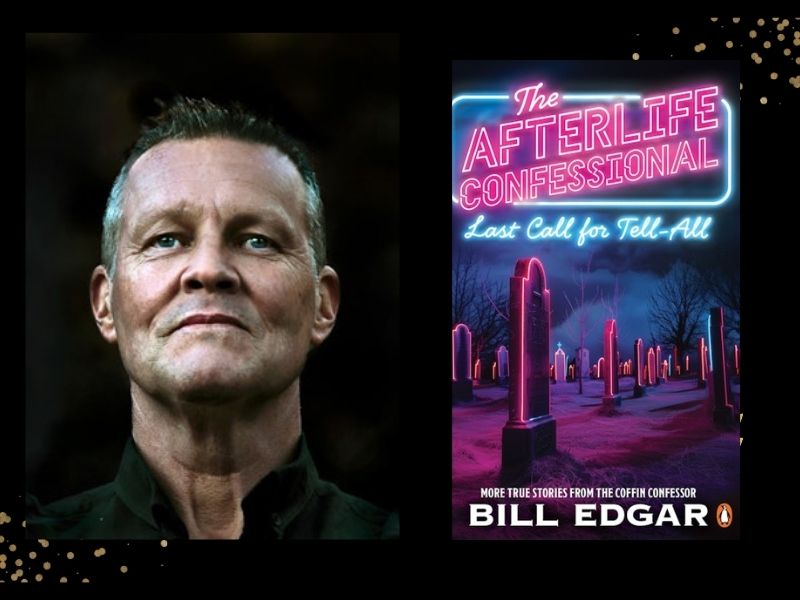Bill Edgar – the ‘Coffin Confessor’ – invented his job: he gets paid to crash funerals ‘on behalf of the deceased, giving voice to their last wishes’. The autobiographical Afterlife Confessional details many episodes in this unusual and intriguing man’s private and professional life. While of course pseudonyms have been used ‘and other details altered where necessary’, Edgar leaves not a skerrick of doubt that what he recounts has actually happened, although the things he says about some people may differ significantly from their own self-image.
But, arguably, the greatest strength of a good autobiography is what it reveals about the author. The Afterlife Confessional proffers a frank self-portrait of an extraordinary person. Abused and neglected as a child, surviving on the streets and a stint in the notorious Boggo Road Gaol, Edgar, with the help of his wife, reforms and educates himself and eventually becomes a successful private detective.
That occupation morphs into becoming the self-styled Coffin Confessor. If you have read Edgar’s first book, The Coffin Confessor, you will already know a lot about who he is and what he does. But that should not prevent you from reading this fascinating book.
The way Edgar constructs his narrative fundamentally contributes to the readability of his stories. Instead of recounting events in chronological order, he presents his anecdotes via loosely defined themes. Stories about clients and would-be clients are interspersed with reminiscences of his life and comments on matters important to him.
And there are no holds barred. Edgar tells of his time in jail, of his life on the streets, of the time when, already reformed, he went out one evening just to rob someone because he needed the money for his family. And he tells of giving that money back. He gives credit to wife for his reformation and successes. He tells of the love he has for his family, for his children and grandchildren.
Edgar’s many stories about his customers are fascinating. Each of them is interesting though some are more bizarre than others. They shine a spotlight on many aspects of our humanity, not least about how people cope with impending death. They say much about bereavement and repentance and revenge and regret. And he shows himself for what he is: a ruthless, disciplined professional with high ethical standards. ‘I don’t break the law – especially not if someone is watching,’ he says. ‘I always act in a way that is going to settle karma, instead of kicking it up.’
In any argument or fight, Edgar is the sort of person I would like to have on my side. Blake, a bully, found that out. When Edgar finds himself delivering Blake a message from Monica, mother of Blake’s deceased wife, Lara, Monica’s smile ‘got bigger and bigger the more the video went on, and the louder Blake begged and cried’.
Dealing with the wishes of those close to death naturally exposes Edgar to the Australian aged care system. It is worth reading what he has to say about what he refers to as ‘nothing short of abuse, on a systemic society-wide scale’.
As a survivor of child abuse, Edgar also recounts his experiences in seeking compensation. He remarks that his lawyer’s business model of ‘no win, no fee’ was based on settlements and that to his lawyer, as well as to the church, he was considered a huge pain in the neck for not being immediately willing to settle. In the end, he does settle for the sake of the peace of mind of his family. He feels he received compensation, but not justice.
Read: Book review: Love, Death & Other Scenes, Nova Weetman
In telling revealing and often exciting stories about people shortly to face death, The Afterlife Confessional demonstrates the adage “truth is stranger than fiction”. As an insight into many aspects of our society it gives more than a little food for thought. As an insight into a most unusual occupation carried out by an exceptional person, it is a masterclass in autobiography. It is a book well worth reading.
The Afterlife Confessional, Bill Edgar
Publisher: Penguin Random House
ISBN: 9781761343254
Format: Paperback
Pages: 224pp
Price: $36.99
Publication date: 2 July 2024






